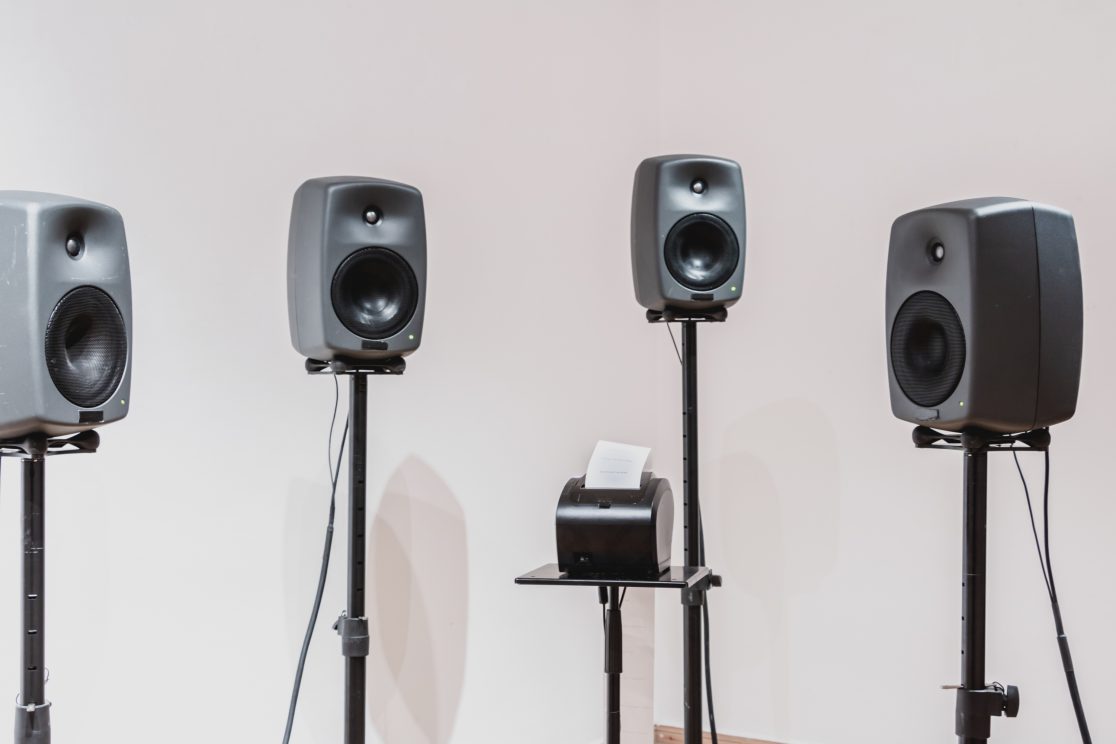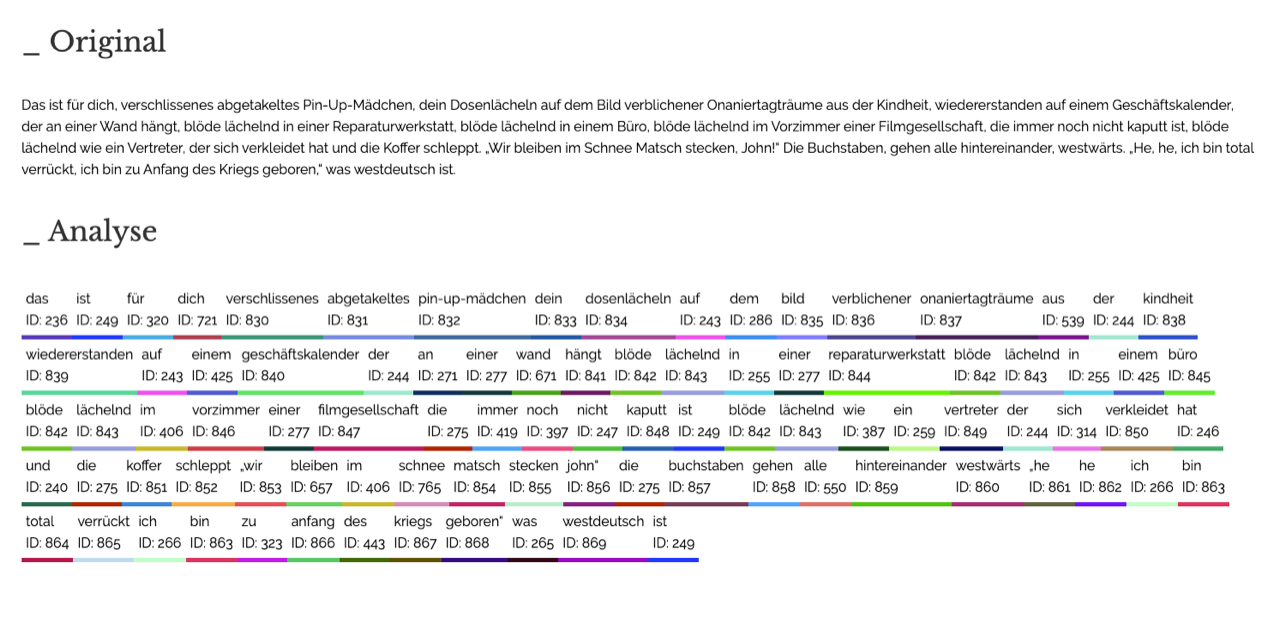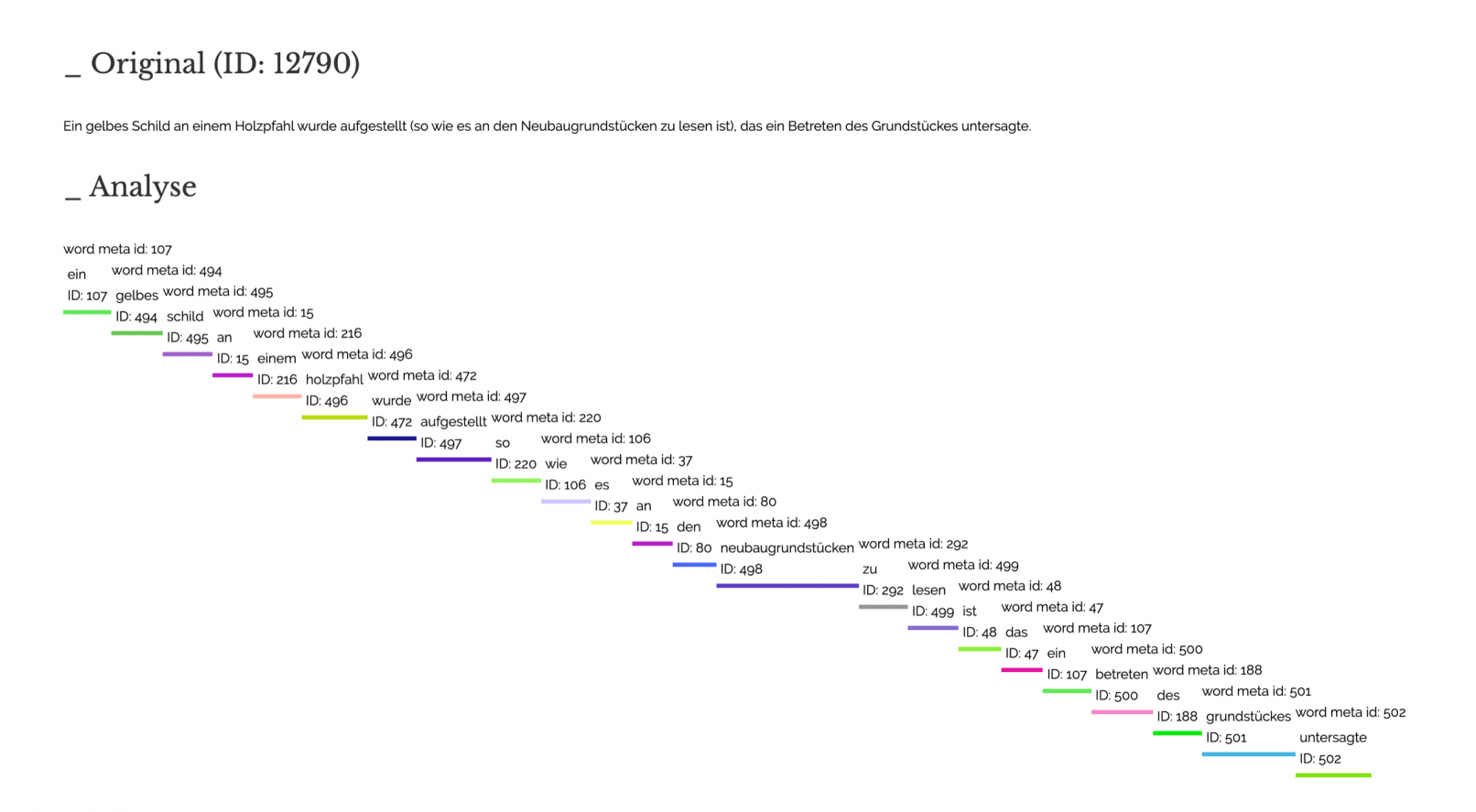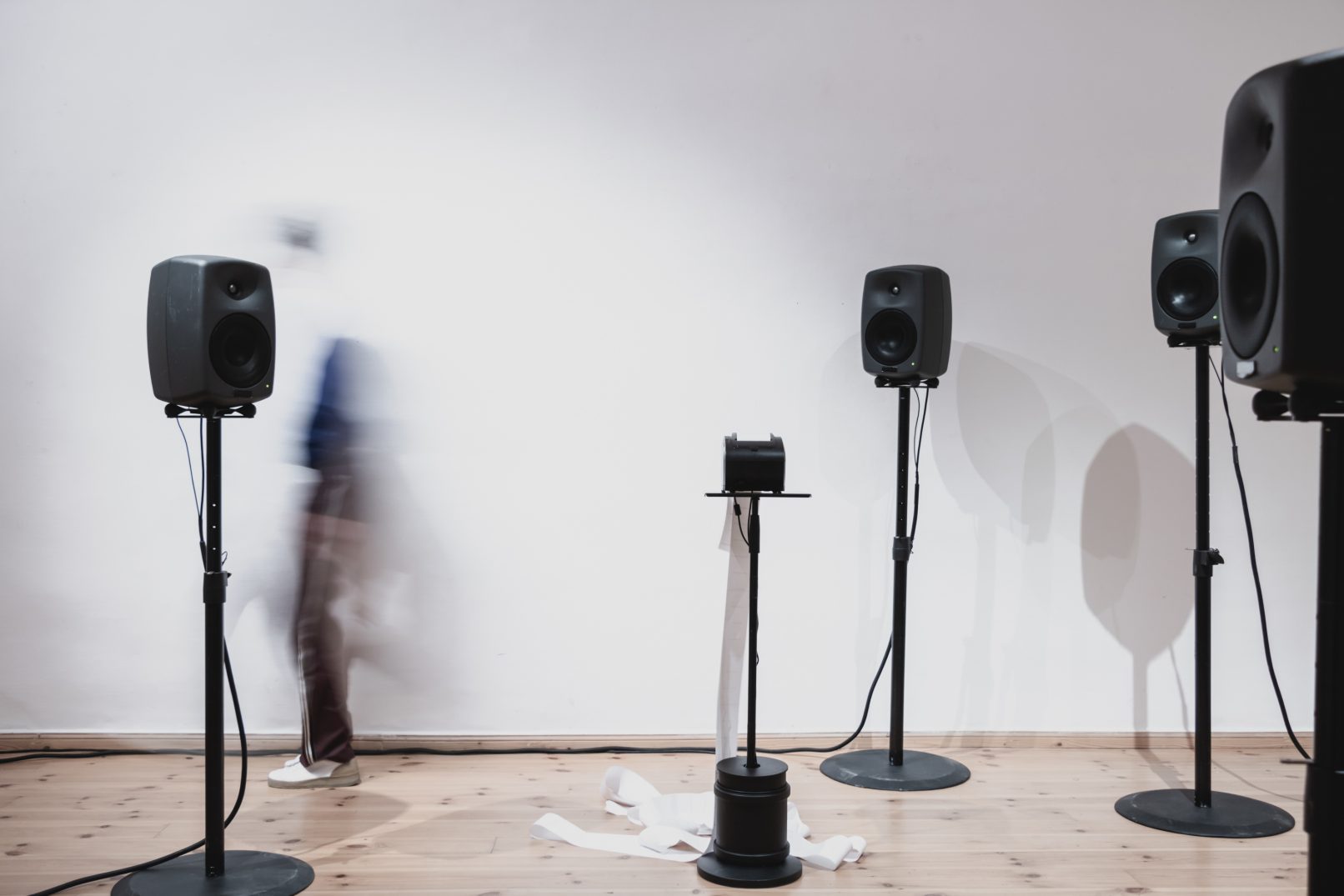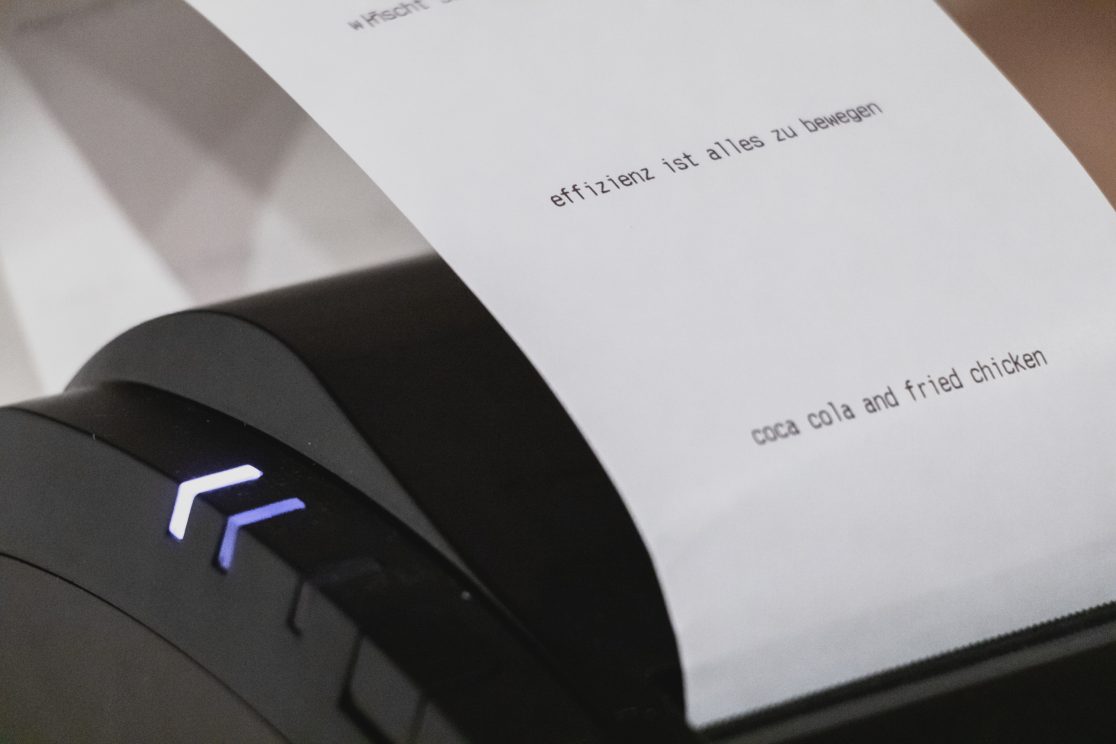Autopoetry Apparatus
Concept: Verena Lercher
Programming: Verena Lercher, Georg Kettele
Spatialisation: Gerriet K. Sharma
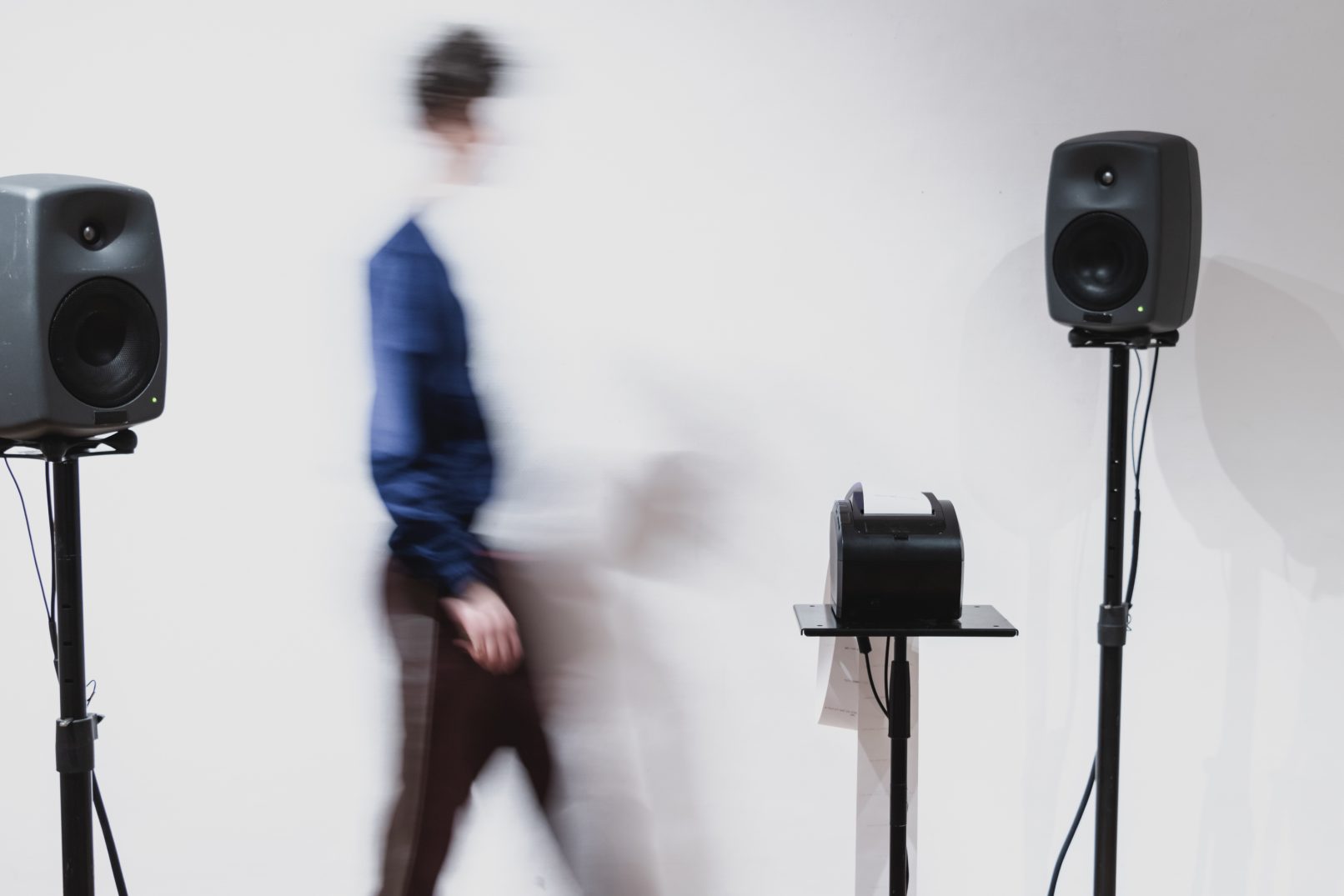
In his preface of »silverscreen« an anthology of new American poetry, Brinkmann argues: The surprising thing about the new American poems is that in the first place, they are simply there. […] I mean, they contain presence. […] A presence relating to the one who writes and not to the fulfillment of general demands, which are always demands of the already existing. What is strived for is an expression for the individual sensitivity, the deviation from the given pattern, namely »poem«, and from the norm that makes »poetry« in such a conceivably simple manner manageable until now.
According to Brinkman, a poem becomes a poem the moment it is written and the moment it is read.
Brinkmann is convinced that with the »American poem« the authors’ personality becomes increasingly significant due to the dissolution of the poem as a work of art (opus) with sophisticated pictorial and imaginative material to an en passant and subjective form of expression such as Brinkmann cultivated to the point of excess.
However, I remain under the impression that »excess« is also an artistic technique in dealing with conventional materials. That leads to the conclusion that style in Brinkmann’s sense always arises anew and situationally from these necessities only to disappear again.
According to Oscar Wilde, the poem is dead: »Gutenberg killed poetry« which itself wants to be a poetic statement!
To announce the end of art is an artistic act.
Art exists »in« paradox.
It is human nature that the most despised things are the most indispensable. Wedekind wrote in 1886 about a new product wanting to revolutionise not exclusively Swiss’ cooking habits: STOCK CUBES.
Alles Wohl beruht auf Paarung.
Wie dem Leben Poesie
Fehle Maggi‘s Suppen-Nahrung
Maggi‘s Speise-Würze nie!
Within the AUTOPOETRY APPARATUS, the learned and practiced writing style is transferred to a different pool of text type.
My working hypothesis is that due to not utterly controllable work of the AI, deviations and set pieces (formerly: errors) occur. These »errors« are not classified as failure of the transfer process, but understood and used as potential. Precisely these errors, in turn, can open up impulses for situational and spontaneous reflection on »right« and »wrong«, convention and the other, and can more sharply encircle our ideas and expectations as an effect of the respective work (cf. Brinkmann: abolishing the boundaries between »high« poetry and »mere« writing).
Thus, the work is neither about a standardised problem or problem-solving nor about generating a new-old Brinkmann but about analyzing Brinkmann techniques that subsequently generate something »third« by applying artificial intelligence.
Many musicians have been similarly learning songwriting since the Beat Generation: one deals with self-chosen models – initially in the sense of imitating, copying – and then from the extracts of various practiced techniques, something different develops in relation to a personal problem statement / definition?

